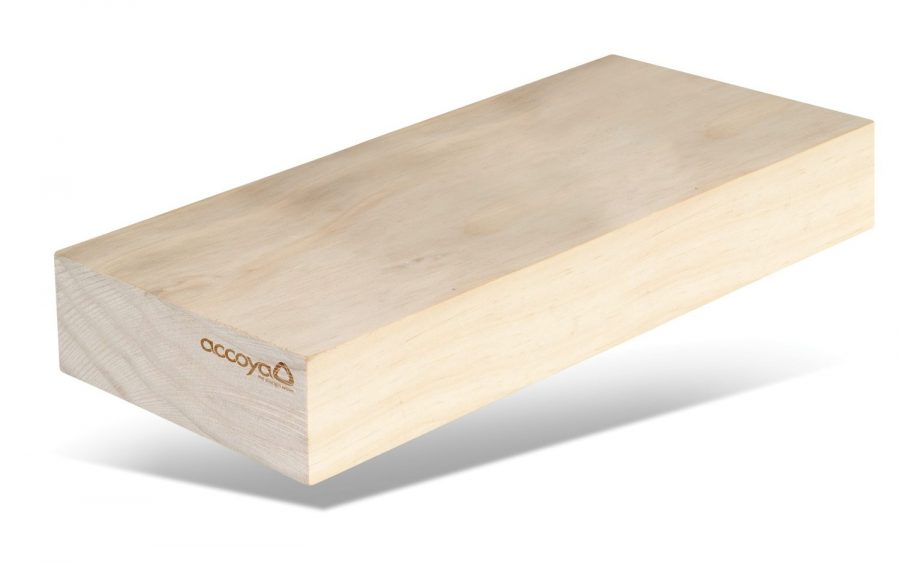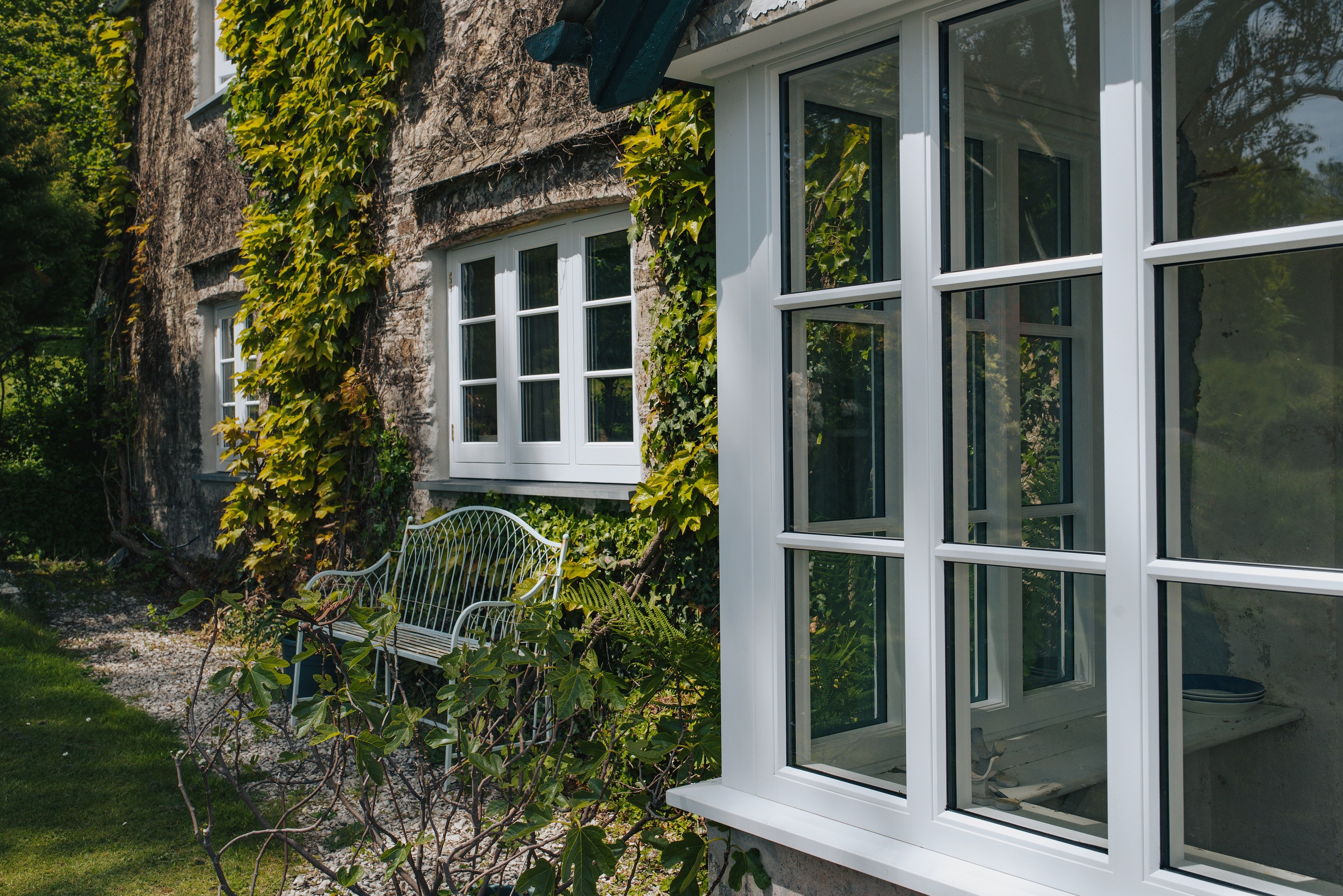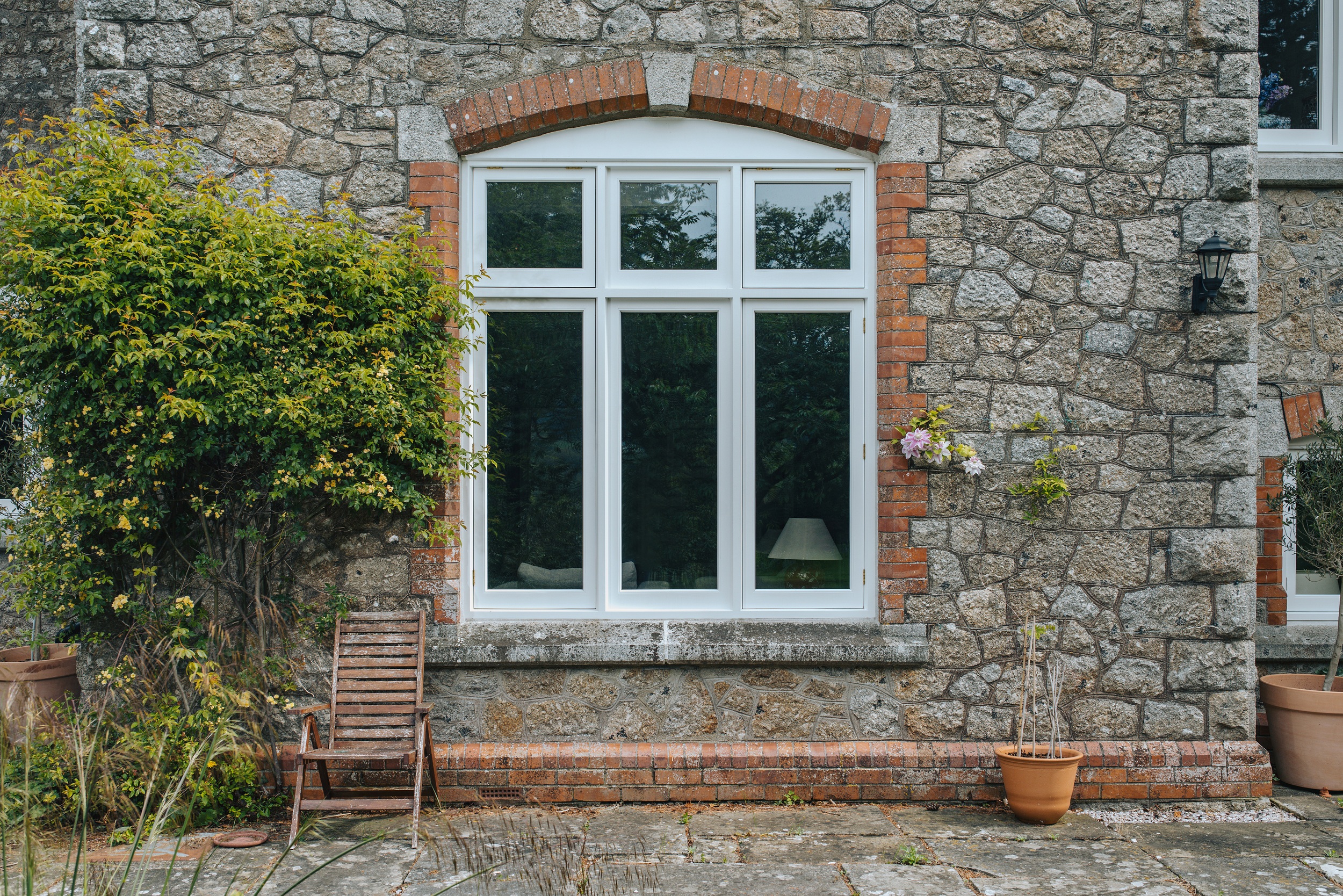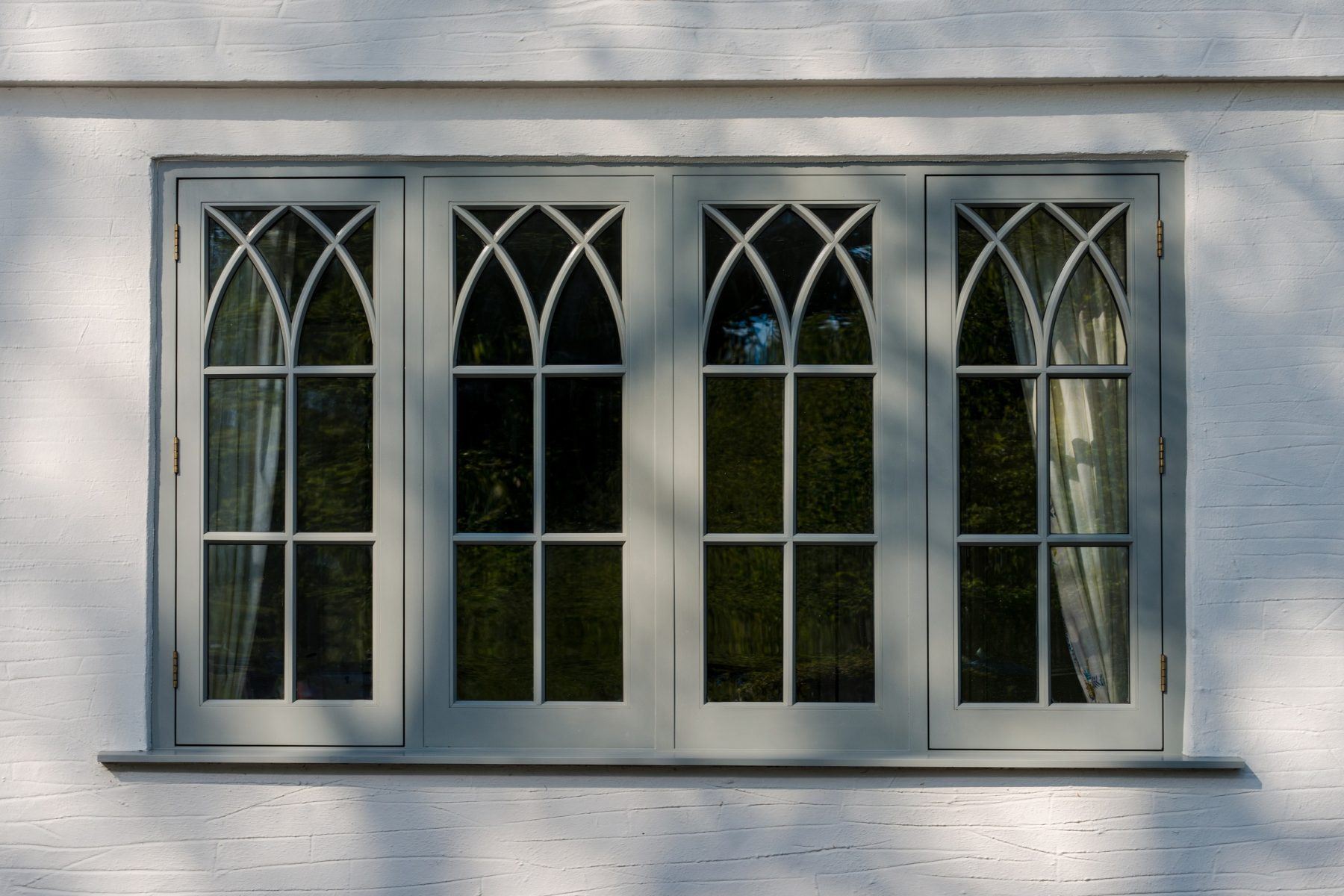« Blog
Bespoke Accoya Windows
Posted on: 20th December, 2019
Everything You Need To Know About Accoya Windows
Whether your home has a modern architectural style or classic period charm, you’ll understand how important it is to achieve the right aesthetic, inside and out. From a Grade II listed or heritage property to a 21st century new build eco-home, preserving or creating its character comes down to using the right materials. And Accoya® windows can be one of many essential attributes that defines its appearance.
Whether a traditional or contemporary home, modern uPVC window frames can’t begin to match the classic timelessness of natural timber. So, among other established woods, sustainably-sourced Accoya wood is the timber of choice for our bespoke timber windows. Used whenever we can for sash or casement window projects, it gives every home a beautiful finish.
Accoya may not be a wood you’ve heard of or know too much about. But by the end of this post, we should have given you a much clearer understanding of its excellent qualities and eco credentials.

What is Accoya wood?
This is a question we’re often asked, quickly followed by ‘why are Accoya windows better than hardwood windows?’ but first things first. Made from sustainably-sourced, fast growing softwood, Accoya goes through a chemical process to give it exceptional capabilities. As a result, Accoya is now the world’s leading high-tech, high performance, eco-friendly wood.
So is Accoya a hardwood or softwood?
Accoya is classed as a softwood. It’s harvested from fast-growing and sustainably-sourced softwoods, then put through a patented ‘surface to core’ wood modification process. This converts the softwood into timber that has all the properties of hardwood, but greatly improved, helping it stay strong and stable for decades. Even after this process, Accoya is still classed as a softwood.
What is the best wood to make windows of?
While conventional timbers like oak, pine, and tropical hardwoods are among the most common materials for windows, it doesn’t necessarily mean they’re the best. While these woods will always have a place in window manufacturing, there are several downsides to them.
Because of natural wood’s penetrable nature, it’s generally not stable enough for long term use without regular maintenance and even replacement. Plus, it’s not a sustainable or environmentally-friendly use of materials either. This is where Accoya is different.

How does Accoya work?
The physical properties of any material are decided by a predetermined chemical formation – and wood is no different. Full of chemical groups called ‘free hydroxyls’, these groups absorb and release water depending on the wood’s environment and what it’s exposed to – this is why wood is able to swell when wet and shrink when dry.
For Accoya, all those ‘free hydroxyl’ groups are changed to ‘acetyl groups’ by applying cutting edge technology and a proven wood modification process called ‘acetylation’. Through this process, the chemical structure of the wood is altered so it loses the ability to absorb water and becomes an environmentally safe, stable wood.
Though it’s all very scientific, the process itself is straightforward and the results give the superior dependability and outstanding resilience to exceed even the finest tropical hardwoods. And that’s why windows made with Accoya are better than normal hardwood windows.
How long does Accoya last?
While it can be sustainably-grown in 25 years, the enhanced nature of Accoya wood helps it achieve a lifespan of at least 50 years above ground and 25 years in ground, wherever it’s used in application. This goes a long way to improving low carbon potential and lowering lifetime material consumption compared with other materials.
The real benefits of using Accoya timber
With extensive laboratory and field testing by leading institutes around the world, results have shown acetylated wood to be extremely reliable. Accoya wood is thoroughly tested for dimensional stability, durability, UV resistance, paint retention, and in-ground conditions to ensure the best results in every situation.
So what does this all mean for you when you choose Accoyatimber for your windows? We’ve put together a handy features guide that highlights the everyday benefits of having windows made with Accoya timber in your home.
Durability
While some woods can be labelled as ‘naturally durable’, this can be a variable and inconsistent feature. But the particularly durable nature of Accoya is rated as Class 1 – the highest level of durability.
That makes Accoya extremely long lasting and can withstand the most demanding weather environments for 50 guaranteed years without replacement – even without any coating. And, Accoya is resistant to mould and insect attack so is virtually rot-proof.
Stability
This is the level to which wood can maintain its original size and shape over long periods when exposed to changing weather conditions. Other woods swell in wet or damp settings and shrink in hot environments, but Accoya has unrivalled stability in thickness and width with high resistance to swelling and shrinkage, and UV degradation.
And thanks to its improved hardness, you can say goodbye to window frames that warp and jam or split and rot.
Sustainability
All Accoya wood is produced from well-managed, sustainable-sources including FSC, PEFC and other certified woods. This helps achieve a low environmental impact and makes it CO2 negative over the wood’s full life cycle – a hugely important factor to us in the current climate emergency.
With its superior natural thermal insulation, Accoya also has overwhelming environmental advantages over standard, slow-growing woods and non-renewable materials such as aluminium. Accoya is also completely non-toxic, reusable, and 100% recyclable – it can even be safely burned as fuel for fires and wood burning stoves, just like we do in our workshop.
We always do as much as we can to be an environmentally forward-thinking company and our extensive use of Accoya goes a long way to keeping the world’s carbon footprint as low as possible.
Maintainability
Thanks to the superior combination of Accoya’s durable and stable qualities, the maintenance required on your windows is drastically reduced. With swelling and shrinkage decreased by 70 – 80%, the wood has a more stable surface for longer, ensuring an improved application lifetime for paint and other coatings.
So, that’s less time on maintenance, less money spent on paint or coatings, and less impact on the environment.


Timber windows from
Nathan McCarter Joinery
Accoya wood is the result of more than 80 years’ research and development. Bringing together a proven wood modification process and cutting-edge technology, it creates a new type of wood that’s an environmentally and architecturally sound choice, used for both windows and doors.
Nathan McCarter Joinery has become a name synonymous with experience and handcrafted quality. Our Accoya sash and casement windows combine all the character, performance, and craftsmanship you need to give your home the finish it deserves.
For more information on Accoya and our range of bespoke door and window joinery services, get in touch with us on 01822 615010 or email us at info@nathanmccarter.co.uk today.
Accoya windows for your project?
We can discuss your own project in more detail, and we’ll be able to help you make the right choice for your home. We can even arrange a time for you to visit our Tavistock workshop so you can see every stage of our manufacturing process, from design to delivery.


